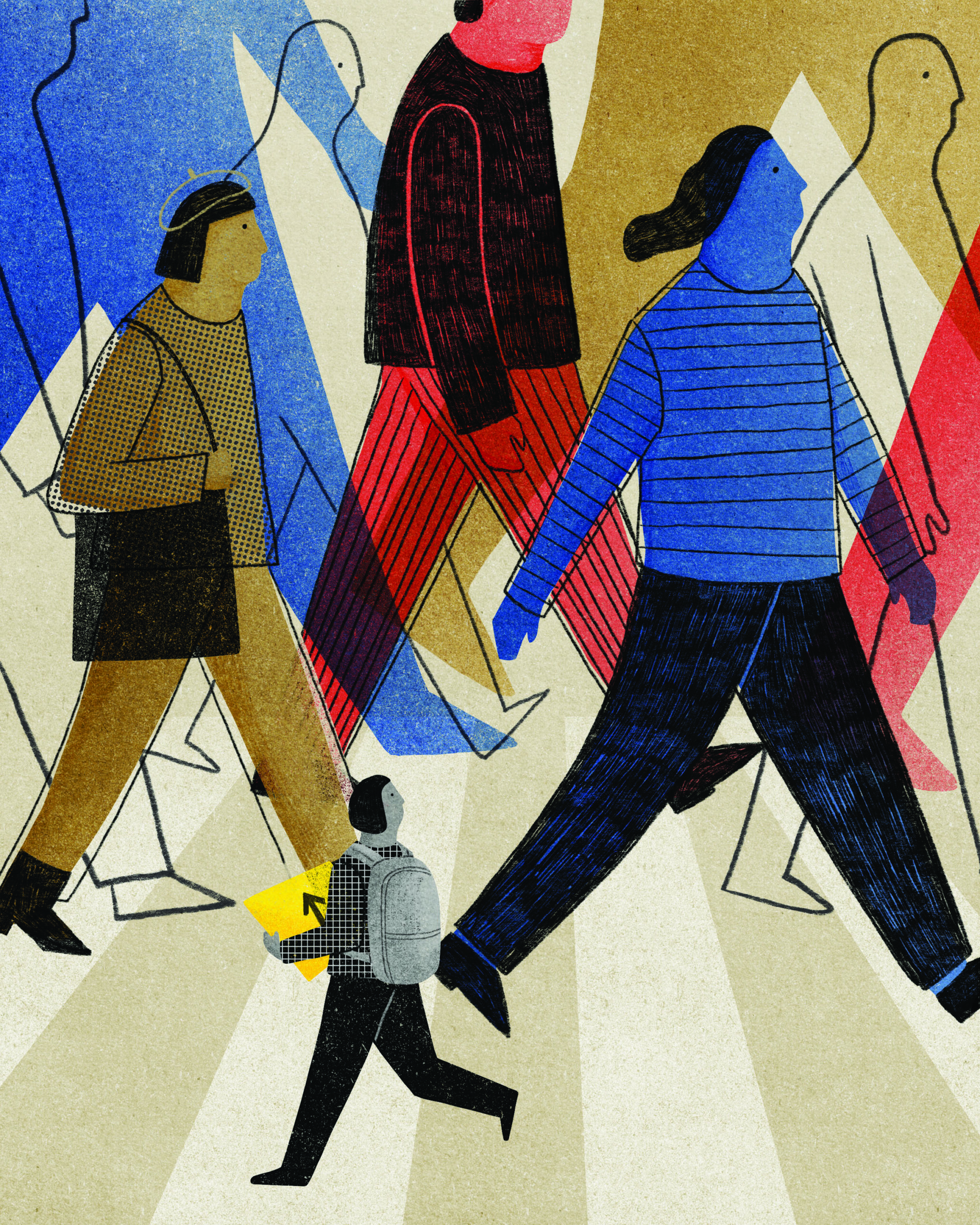
Lori Duke ’95 takes up a State Department challenge to make international child hosting programs safer and better.
Art by Sunnu Rebecca Choi
Who’s tracking?
The U.S. State Department’s Diplomacy Lab program aims to harness the research capacity of the country’s top universities to investigate world problems that are little studied and poorly understood. One such problem is “orphan hosting,” the term for programs that bring adoptable children to the U.S. for short stays, giving them relief from trauma in their home country—poverty, or military or civil strife—and introducing them to potential adoptive American families.
This issue caught the attention of Professor Lori Duke ’95, co-director of the Children’s Rights Clinic. An expert in child welfare, Duke was selected by the Diplomacy Lab to study orphan hosting and to make policy recommendations. She assembled a team of then-3L students, Katherine Himaya Lewis ’24 and Franchizca Scipio ’24, and got to work.
There was just one problem.
Unlike the highly regulated world of international adoption, child hosting is a vast unknown. Adoption protocols “make sure people are who they say they are, and that they can afford—financially, emotionally, socially—to raise a child in a healthy way,” says Duke.
What could make orphan hosting into something better and safer?
With orphan-hosting, there are no governing bodies, no federal or state regulations, nor any centralized data on these programs. No one knows how many children, host-families, or agencies are involved. Nor has anyone tracked how effective they are in securing children’s welfare.
“I was discouraged by the lack of information available, but this project forced me to think outside of the box,” Lewis says. They began interviewing as many families as they could.
Because orphan hosting is so unregulated, the team learned that “a family often hosts a child without knowing their trauma history,” notes Duke. Moreover, host families indicated they receive little to no training in how to care for such children. Families also reported receiving inaccurate information about children’s disabilities, health, and language skills.
Similarly troubling, no institution is designated to check on hosted children to make sure they are safe and well cared for.
“I’m sure there are some children and families who are very grateful for the program,” Scipio says. “Instead of just completely getting rid of the program, what could make it into something better and safer?”
With that in mind, the team compiled their findings and recommendations into a comprehensive 100-page report they submitted to the State Department. Their top recommendations: hosting agency accreditation and a central authority—such as exists for international adoption—to oversee U.S. hosting programs.
Impressed with the team’s research, the State Department invited Duke, Lewis, and Scipio to share their insights through a live presentation to the agency. “The data will assist in policy-development and decision-making in this office,” remarked State Department officer Alex Nelson.
Duke’s project was the first (and so far only) project from UT Austin selected for the Diplomacy Lab.
